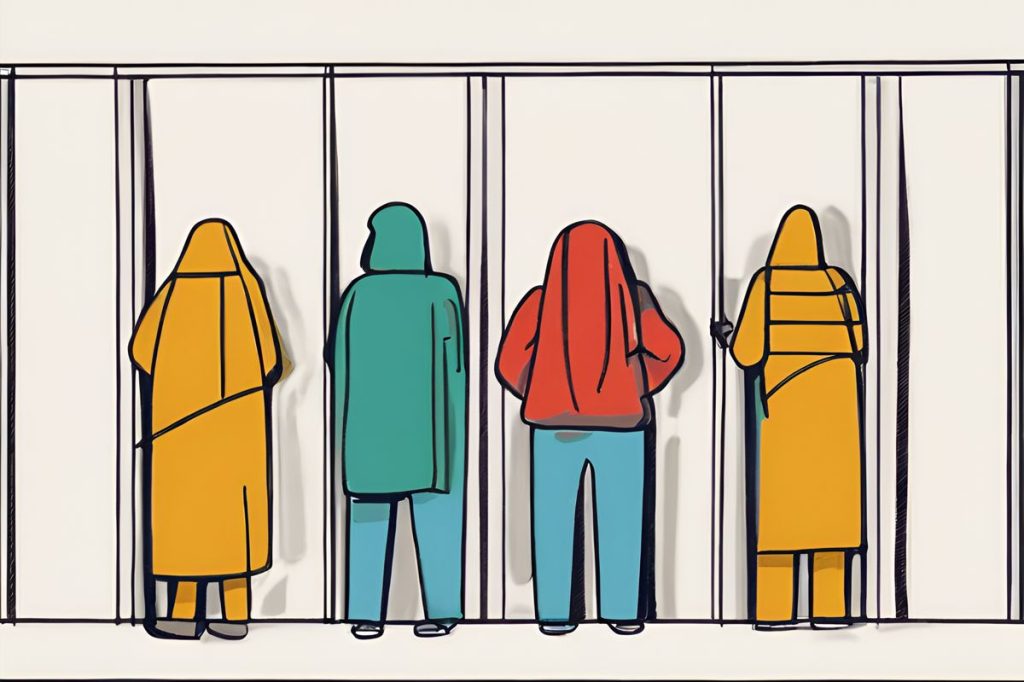Cyprus has suspended the processing of asylum applications from Syrian nationals for 21 months, introducing disincentives and limited state assistance for new arrivals. Diplomatic efforts and clamping down on illegal employment aim to manage the surge in Syrian asylum seekers, with the government facing criticism and domestic challenges.
What measures has Cyprus taken to address the surge in Syrian asylum seekers?
Cyprus has suspended the processing of asylum applications from Syrian nationals for 21 months. The government introduced disincentives such as limited work prospects and state assistance, diplomatic efforts to mitigate migration flow, and clamped down on illegal employment, providing only basic necessities to new arrivals.
Implementing Disincentives
Facing an unprecedented increase in Syrian migrants, the Cypriot government has taken a bold step to manage the situation. In a move that has stirred considerable debate, they have suspended the processing of asylum applications from Syrian nationals for a period of 21 months. This moratorium was introduced following the arrival of over 3,000 Syrian migrants in the first quarter of the year alone, signaling a significant surge that demanded immediate attention.
The decision aims to stem the tide of new arrivals by implementing a series of disincentives, including the lack of work prospects and limited state assistance for the migrants during the processing period. With these measures, migrants may reconsider Cyprus as their destination, knowing the challenges that lie ahead.
Diplomatic Efforts and EU Relations
In a recent diplomatic effort, President Nikos Christodoulides paid a visit to Beirut, seeking cooperation from the Lebanese government to reduce the flow of migrants. The effectiveness of these diplomatic negotiations remains uncertain, as subsequent arrivals suggest that Lebanon’s ability to curb the migration is either limited or not fully enforced.
Additionally, Interior Minister Constantinos Ioannou has been actively campaigning for the EU to reassess the classification of certain regions in Syria, arguing that they should no longer be deemed war zones. This reclassification would significantly impact Cyprus’s obligations toward asylum seekers from these areas. However, the reclassification process is intricate and time-consuming, and its realization is still in question.
Domestic Challenges and Opposition
The government’s strategy has not been without criticism. The main opposition party, Akel, contests the legality of the government’s decision and warns of the potential for overcrowding in reception centers and a backlog of applications. They propose an alternative solution: a fair distribution of migrants across EU member states according to each country’s population. Despite this suggestion, such a policy has not gained traction, leaving Cyprus to address the issue with limited support from the EU.
The strategy to deter migrants also involves clamping down on illegal employment and ensuring that new arrivals receive only basic necessities such as food and shelter. While these measures are stringent, the government deems them necessary to control the situation and maintain order.
Ongoing Migration Challenges
Cyprus is currently facing a backlog of 10,000 pending asylum applications, with Syrians making up a significant portion of these cases. The steady increase in migrant arrivals has placed substantial pressure on the country’s resources and infrastructure, prompting the government to take decisive action.
The island’s geographical position close to the Middle East makes it an accessible entry point to the EU for many migrants. As a member of the EU, Cyprus is bound by international laws concerning the treatment of refugees and asylum seekers, which adds complexity to the government’s response to the crisis.
In conclusion, Cyprus’s response to the surge in Syrian migrants is multifaceted, involving both local policy changes and international diplomacy. While the government’s actions may be considered stringent, they reflect the urgency of the situation and the need for immediate action to prevent a larger crisis. The Cypriot government faces the challenge of balancing humanitarian obligations with national interests, seeking to find a sustainable solution to an increasingly complex issue.
What measures has Cyprus taken to address the surge in Syrian asylum seekers?
Cyprus has suspended the processing of asylum applications from Syrian nationals for 21 months. The government introduced disincentives such as limited work prospects and state assistance, diplomatic efforts to mitigate migration flow, and clamped down on illegal employment, providing only basic necessities to new arrivals.
What diplomatic efforts has Cyprus made to manage the migration flow?
President Nikos Christodoulides visited Beirut to seek cooperation from the Lebanese government to reduce the flow of migrants. Interior Minister Constantinos Ioannou has also been advocating for the EU to reassess the classification of certain regions in Syria to impact Cyprus’s asylum obligations. However, the effectiveness of these diplomatic efforts remains uncertain.
How has the opposition in Cyprus responded to the government’s strategy?
The main opposition party, Akel, has criticized the government’s decision to suspend asylum applications from Syrian nationals. They have warned of potential overcrowding in reception centers and propose a fair distribution of migrants across EU member states. Despite the opposition’s suggestions, Cyprus continues to face the migration challenge with limited EU support.
What ongoing challenges does Cyprus face regarding asylum applications and migrant arrivals?
Cyprus currently has a backlog of 10,000 pending asylum applications, with a significant number of them being from Syrian nationals. The country’s geographical position makes it an accessible entry point to the EU for many migrants. Balancing humanitarian obligations with national interests, Cyprus must find a sustainable solution to manage the surge in migrant arrivals effectively.

